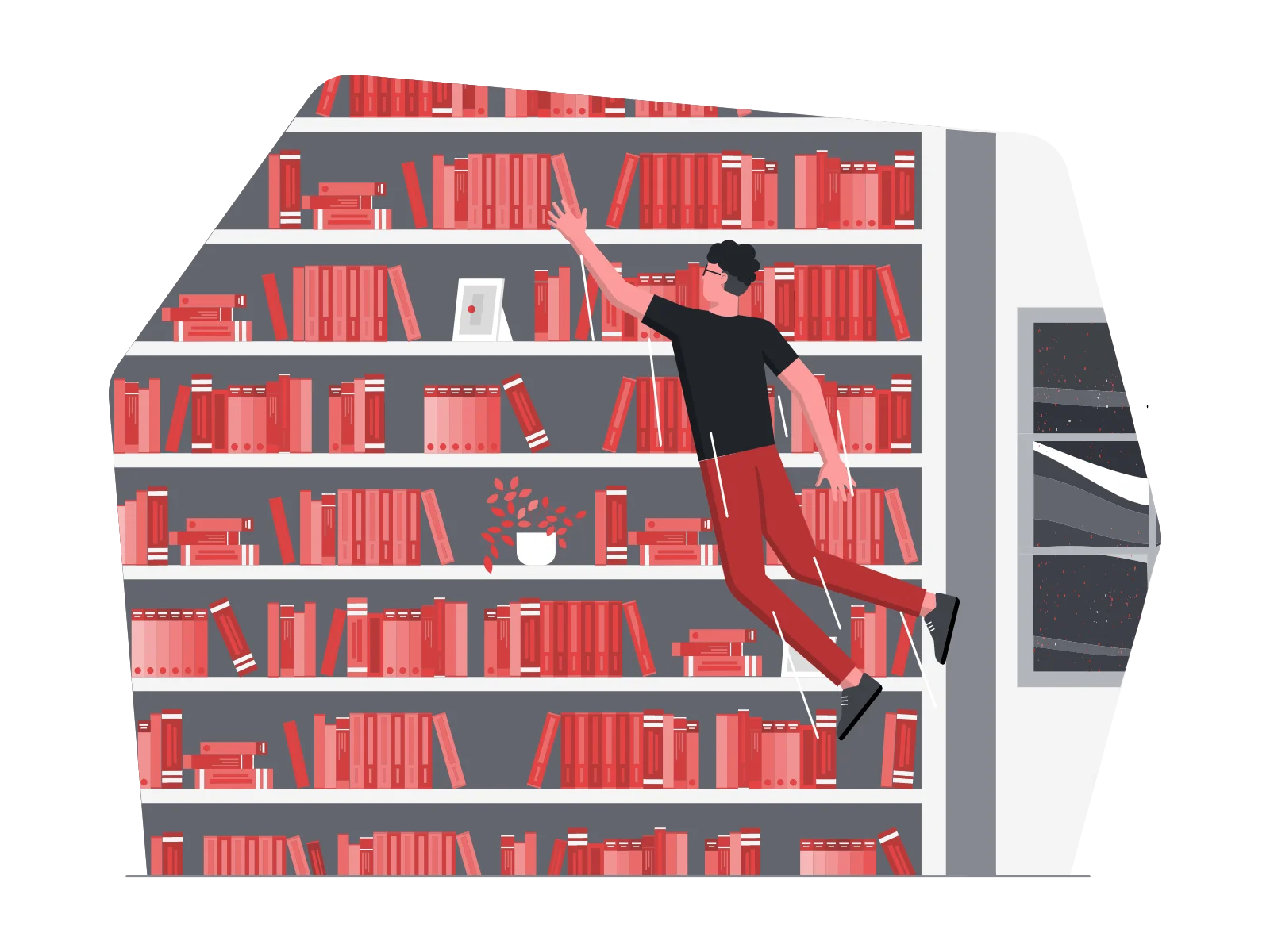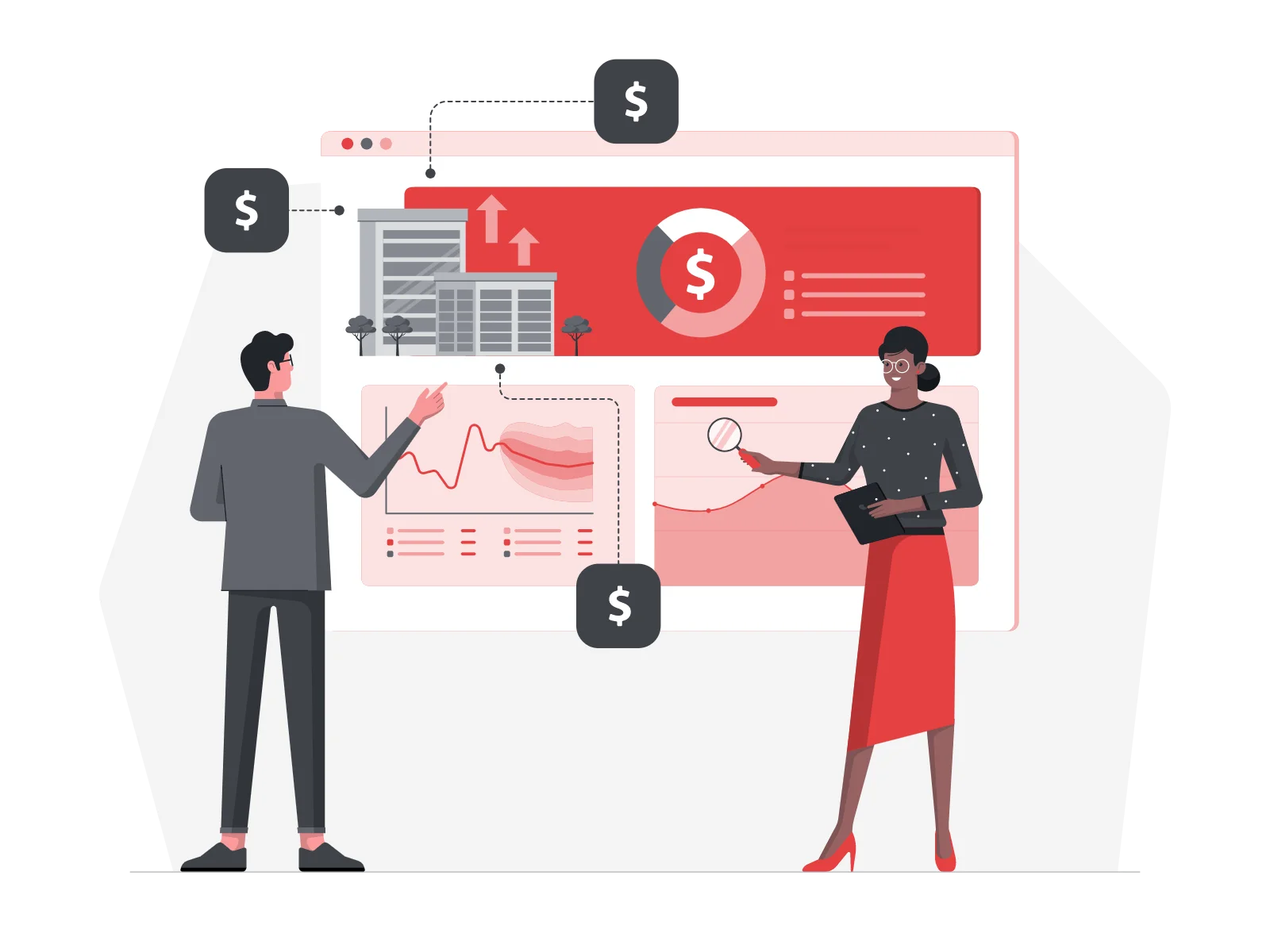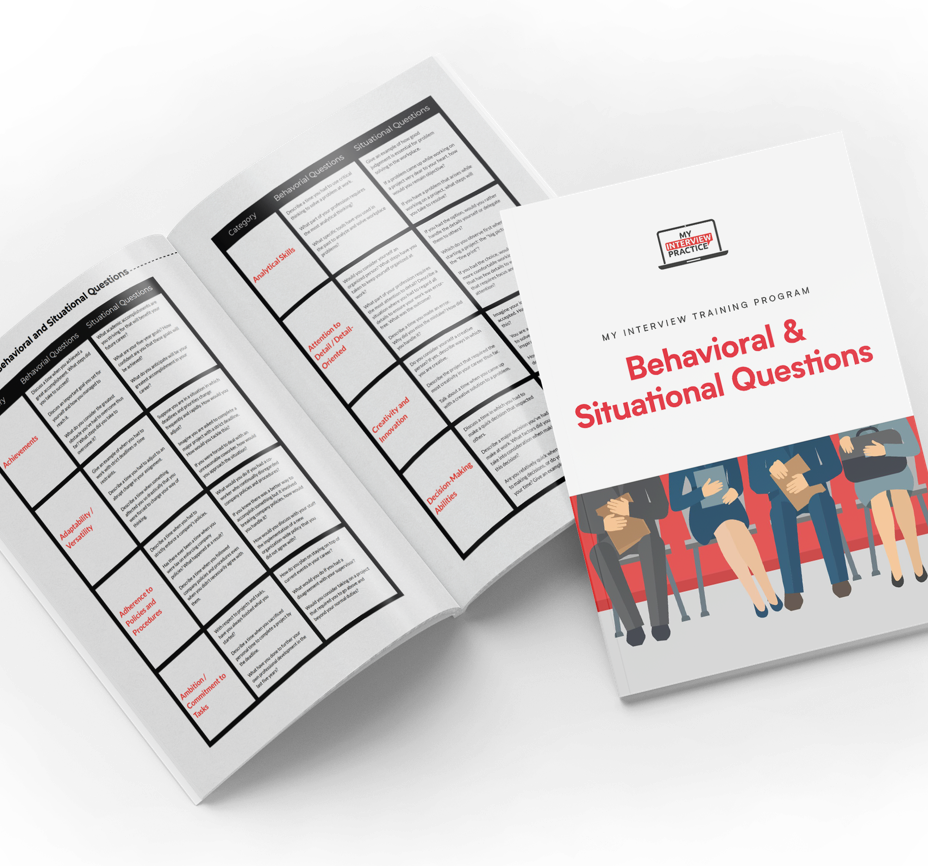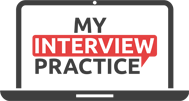How to Answer Interview Questions About Failure

Job interviews are a crucial part of the hiring process, allowing potential employers to assess a candidate’s skills, experience, and fit for a particular role. One common interview question that can be challenging to answer is “Tell me about a time you failed.”
It’s one of the most dreaded interview questions by job seekers, right up there with the classics like “Tell me about yourself.” Many candidates fear it because it forces them to talk about a mistake or shortcoming.
Everyone makes mistakes, and this question shouldn’t be a problem. It is designed to evaluate a candidate’s ability to handle setbacks, learn from mistakes, and demonstrate resilience in the face of challenges.
To answer this question effectively, it’s essential to understand the interviewer’s goals and be prepared to provide a thoughtful and insightful response. By sharing past failures and what was learned from the experience, candidates can showcase their problem-solving skills, self-awareness, and ability to overcome challenges.
In this guide, we’ll cover why employers ask failure questions, the key qualities to highlight, and well-structured example answers. Let’s dive in!

How to Answer Questions Related to Failure
People are generally uncomfortable talking about their failures since they address negative aspects of your career. You are conditioned to focus on your positives and put your best foot forward during an interview. It is much easier to discuss your achievements, successes, and the key points described in your resume. However, if you anticipate behavioral questions about failure and are prepared to answer them, you will find it easy to respond to these questions during an interview. Looking for additional practice to ensure you exude confidence? Our training here will showcase your positivity and self-confidence in your response.
Failure-related behavioral questions can best be responded to using the STAR format. This helps you organize your response by creating a story related to the question.
The STAR format uses the following framework:
Situation – Briefly describe a situation related to the question. Ensure the situation you use describes a time you failed but not something that was catastrophic or something from which you didn’t recover.
Task – Summarize the task or goal you needed to achieve. Describe how responding to a failure appropriately helped you overcome it or learn a valuable lesson you could apply the next time something similar occurred.
Action – Talk about the actions you took to overcome the failure. These actions should focus on the steps you took to fix the problem or minimize its impact.
Results – Discuss the results you achieved and the impact they had on the organization. Talk about how the failure was addressed, the lessons you walked away with, and how you would apply these going forward.
When preparing for an interview, you should anticipate this type of question and have your STAR stories ready. The stories you relate should be relevant to the position for which you are interviewing so they resonate with the hiring manager. Preparing your stories in advance and rehearsing them before the interview will give you confidence. It will also enable you to respond to the interviewer’s questions by providing compelling stories and communicating them clearly and expertly.

Common Failure Interview Questions With Example Answers
This section explores common interview questions about failure or mistakes. For each, we clarify what the interviewer seeks and provide an example answer tailored to show honesty, full responsibility, and growth. Use these as inspiration to craft your own stories, emphasizing resilience, accountability, and problem-solving across varied scenarios.
1. “What is the greatest lesson you learned from one of your failures?”
Interviewers specifically ask this to see if you can transform failures into valuable lessons, a quality employers highly value. They want to know that you can reflect on setbacks and apply insights to improve, ideally with lessons relevant to the organization’s work.
Example: “Probably the greatest lesson I ever learned from a failure occurred early in my career. I had just graduated from trade school and was apprenticing under a master plumber. Trying to impress them, I took a shortcut that I thought would save time and money. Instead, the system we were working on failed, and we had to spend extra time and money repairing it. What I learned was to do things right the first time rather than attempt shortcuts.”
2. “What has been your biggest failure in your career?”
This question probes how you handle a major setback with self-awareness and humility. Interviewers seek evidence of growth from a significant failure, not denial of mistakes. Avoid claiming you have never failed, as it seems disingenuous.
Example: “My biggest failure was as a new sales manager. I was tasked with leading a small team but focused too much on handling client deals myself instead of mentoring my team. I didn’t delegate effectively, leaving my team untrusted. One top salesperson quit, citing my lack of empowerment during an exit interview. That hit hard. I apologized to my team, sought their input, and gave them more autonomy. I also took a leadership course. Since then, team morale and performance improved, and we hit sales targets quarterly. This taught me to trust and empower others.”
3. “Have you ever witnessed one of your colleagues failing, and if so, how did you react?”
If the interviewer asks this question, they are looking to understand how you respond to a colleague’s failure, testing your teamwork and commitment to organizational success. Interviewers want to see if you support your team, learn from others’ mistakes, and contribute to collaboration.
Example: “It is difficult to witness one of my team members failing. When this happens, I often feel as bad as they do. An example of this was when one of my associates set up their manufacturing fixture incorrectly and proceeded to make parts. They only realized the error after having manufactured several dozen pieces. This put the entire department behind schedule. My teammates and I volunteered to stay late to make up for the lost production. We were able to do this and were back on schedule by the following day. The lesson I took away from this experience was to double-check my work. Our department instituted a process of verifying each other’s setups, which prevented this incident from recurring.

4. “Can you give me an example of how you were able to bounce back after a failure?”
Interviewers pose this to assess your resilience and ability to recover from setbacks, from the times you failed. They want to see how you turn a failure into progress, demonstrating problem-solving and perseverance.
Example: “As a business development associate, I spent months on a proposal for a major client but lost to a competitor. I asked the client for honest feedback and learned I missed key pain points by not asking enough questions. Two months later, I pitched a smaller project, thoroughly researching their needs. We won that contract. That small win built trust, leading to a larger contract later. This taught me to seek feedback and adapt, turning a no into a yes.”
5. “Describe a situation when you had to tell your manager about a failure.”
This question examines your accountability and clear communication when admitting a mistake to a superior. Interviewers want to see honesty, proactiveness, and how you handle the consequences of failure.
Example: “As an IT project coordinator, I was responsible for communicating system changes. During a software update, I omitted a key login procedure in my staff email. This caused confusion, flooding our support desk and catching my manager off guard. I immediately informed my manager, took responsibility, and called an emergency meeting to clarify. I also sent a detailed follow-up email and created a checklist for future updates. Operations normalized the next day. This taught me to double-check key details, and my team leader later praised my thorough summaries.”
6. “Have you ever been part of a team that failed, and what was your part in the failure?”
Interviewers ask this to evaluate your role in a team failure and your ability to reflect on it without deflecting blame, and the experiences taught by these failures.
Example: “As an IT technical lead, my team was tasked with deploying a client system update in a tight weekend window. I decided to skip testing steps to meet the deadline, assuming prior success would repeat. The live deployment failed, causing user errors. We rolled back the update, upsetting the client. As the lead, I owned the mistake, rescheduled the deployment, and followed full testing protocols, catching a fixable error. We succeeded the second time. This taught me to prioritize quality over speed, and I have advocated for proper testing ever since.”
7. “How comfortable are you informing a client that you weren’t able to satisfy their requirements, and can you give me an example?”
This question tests your professionalism and communication skills when delivering bad news to a client. Interviewers want to see how you maintain relationships when under pressure.
Example: “In my first year as a team lead at a tech company, I organized a launch event with a tight two-month timeline for a very niche target audience. I underestimated the workload, and vendor delays forced us to postpone the launch by a week. I personally called the client to apologize, took responsibility for the miscalculation, and kept them updated until the event succeeded. They appreciated my transparency. I learned to set realistic deadlines and make open communication, and the client praised my next on-time launch.”
8. Have you ever taken responsibility for a failed business initiative even though it wasn’t your fault?”
You may face this question when the interviewer wants to understand your leadership and integrity. Interviewers want to see if you prioritize team success over personal blame, demonstrating maturity and responsibility.
Example: “As a project coordinator, I was part of a team rolling out a new software tool that failed to meet user adoption targets. While the tool’s design flaws were the primary issue, I was responsible for training users. I took responsibility during a review meeting, acknowledging that my training sessions could have been clearer. I proposed additional workshops and created user guides, which boosted adoption by 20%. This taught me to focus on solutions rather than blame, strengthening team trust.”
9. Describe a situation in which you were able to turn a failure into a positive outcome.
Interviewers use this to gauge your ability to transform setbacks into learning opportunities. They seek creativity, resilience, and a positive mindset in overcoming failure.
Example: “As a content writer, I aimed to grow our blog traffic by 50% in six months. I focused on long posts but neglected keyword research and promotion, resulting in flat traffic at three months. I consulted an SEO specialist, studied best practices, and adjusted my articles with better keywords and social sharing. We hit 30% growth by six months, missing the goal, but my new tactics led to 60% growth by month nine. This failure taught me SEO and marketing, driving greater success.”
10. What has been the biggest business failure you have witnessed in your career, and what did you learn from it?
Here, you should explain your perspective on large-scale failures, how you handle challenges, and your ability to extract lessons from them. Interviewers want to see analytical thinking and growth from observing others’ mistakes.
Example: “At a previous company, a major product launch failed due to poor market research, costing significant revenue. As a marketing analyst, I saw how the team assumed demand without validating it. The product flopped, leading to layoffs. I learned the critical importance of data-driven decisions. Since then, I always advocate for thorough market analysis before launches, and my current team’s campaigns consistently meet targets due to this approach.”
11. Have you ever had to choose between failing and doing something unethical to prevent it?
Interviewers pose this to test your ethics and decision-making under pressure. They want to see if you prioritize integrity over short-term success, even when failure is at stake.
Example: “As a sales rep, I was pressured to meet a quarterly target by exaggerating a product’s capabilities to a client. Missing the target would have delayed a team bonus. I chose to be honest, explaining the product’s limits while offering alternative solutions. We lost the deal, but I maintained my integrity. The client later returned for a different product, citing my honesty. This taught me that ethical decisions build long-term trust over temporary gains.”
12. Tell me about a time you took a risk, knowing that failure would have dire consequences.
This question assesses your willingness to take calculated risks and handle difficult circumstances. Interviewers seek evidence of strategic thinking and resilience despite potential severe outcomes.
Example: “In my previous role as a product manager, I volunteered to lead a pilot for a new feature, knowing a failed launch could jeopardize our company’s funding round. I pushed for a bold design, but initial user tests showed glitches. Recognizing the stakes, I delayed the launch, reallocated resources for fixes, and retested rigorously. The revised feature launched successfully, securing investor confidence. This taught me to balance bold risks with meticulous execution.”
The key to nailing your interview – practice, practice, practice.
As with anything, practice makes perfect. The most common ways to practice are with in-person mock interviews or a list of questions. While these options are a great place to start, they can leave a lot to be desired.
Practicing with In-Person Mock Interviews and Question Lists
One way to get valuable interview practice is to set up in-person mock interviews. Unfortunately, they can be somewhat inconvenient. You have to find someone to conduct the mock interview, and schedule a meeting every time you want to practice.
Question lists offer a much more convenient way to practice interviewing. Unfortunately, they do little to recreate actual interview pressure. In a real interview you’ll never know what’s going to be asked and this is exactly what can make interviews so stressful.
Interview Simulators – The best of both worlds.
With interview simulators, you can take realistic mock interviews on your own, from anywhere.
My Interview Practice offers a dynamic simulator that generates unique questions every time you practice, ensuring you're always prepared for the unexpected. Our AI-powered system can create tailored interviews for any job title or position. Simply upload your resume and a job description, and you'll receive custom-curated questions relevant to your specific role and industry. Each question is crafted based on real-world professional insights, providing an authentic interview experience. Practice as many times as you need to build your confidence and ace your next interview.
| List of Questions |
In-Person Mock Interview |
My Interview Practice Simulator |
|
|---|---|---|---|
| Questions Unknown Like Real Interviews | |||
| Curated Questions Chosen Just for You | |||
| No Research Required | |||
| Share Your Practice Interview | |||
| Do It Yourself | |||
| Go At Your Own Pace | |||
| Approachable |
Our interview simulator uses video to record your responses, and recreates the pressure you would feel in a real interview. This also allows your to see how you perform and perfect your responses. You can then share your responses with colleagues and mentors so that you can get valuable feedback.
Get the free training guide.
See the most common questions in every category assessed by employers and be ready for anything.
Get the Guide



